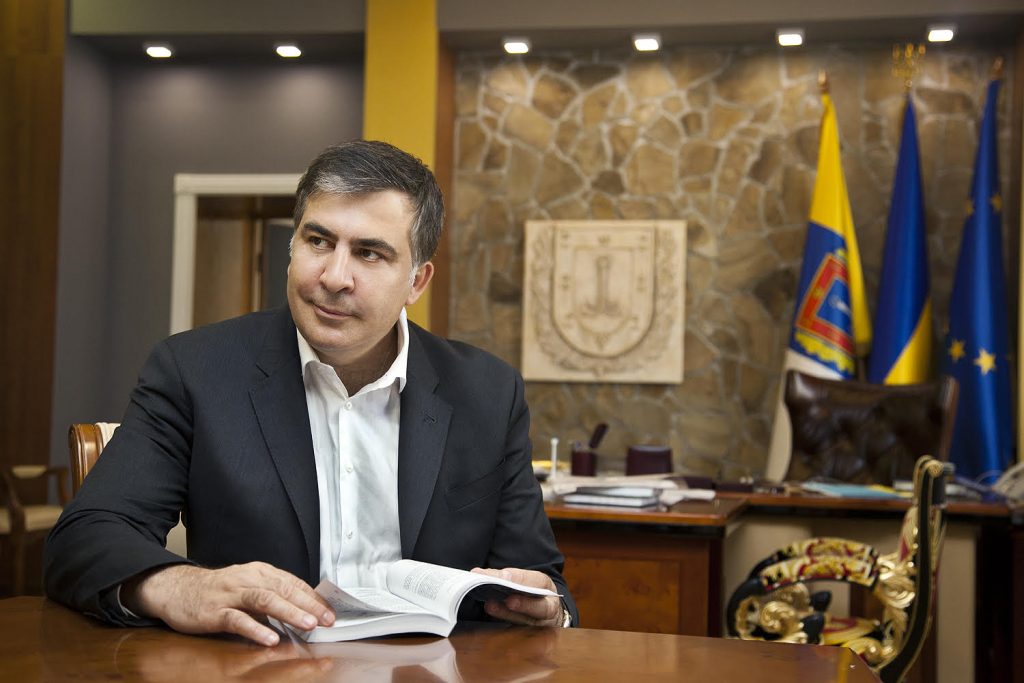A new evaluation by the group of doctors convened by the Public Defender said today that ex-President Mikheil Saakashvili’s health has “further deteriorated” since their previous visit to the Rustavi Prison in January.
The Public Defender’s office stated that physicians found during the April 22 visit to Saakashvili that the ex-President is currently in a negative catabolic state.
“The patient’s condition can be described as protein starvation,” it said. “He is losing weight at the expense of losing muscle mass.”
The group of experts found that Saakashvili suffers from resistant post-traumatic stress disorder, depression, and anorexia, and consumes only about one-fourth to one-third of the required daily calories.
Besides, they said the ex-President has developed significant fatigue and weakness as a result of the protein starvation and he has also experienced a “significant reduction in quality of life and efficiency of functioning.”
Considering Saakashvili’s health condition, the physicians recommended “timely, complex neuro-psychological and physical rehabilitation.” Otherwise, the protein starvation will “inevitably lead” to significant loss of muscle and weight, increased risk of infections, and disruption of the functioning of internal organs, they warned.
The statement also recalled that the authorities did not, or could not, implement earlier recommendations of the group of experts on the psychotherapy and physical rehabilitation of Saakashvili, leading to further worsening of Saakashvili’s condition.
The experts’ visit with Saakashvili came after the ex-President raised the alarms about his worsening health during a Court hearing on April 20. Judge Nino Chakhnashvili also ordered the Special Penitentiary Service to ensure the provision of adequate medical services to the jailed opposition leader.
- Court Orders Penitentiary to Provide Proper Medical Treatment to Saakashvili
- ECHR Accepts Saakashvili Cases for Review
The ex-President’s treatment in the penitentiary system has been a subject of controversy since his detention in October, after returning from self-imposed exile back to Georgia on the eve of elections.
Following the detention, Saakashvili immediately launched a hunger strike and as his health condition deteriorated, the authorities on November 8 transferred him forcibly to the Gldani Prison Hospital. He had demanded to be taken to a civilian multi-profile clinic instead.
Public Defender Nino Lomjaria initially set up a group of experts to monitor the medical services provided by the state to Saakashvili in the Gldani hospital. Subsequently, the European Court of Human Rights took into account the group’s findings and tasked the Georgian authorities to heed the experts’ recommendations.
Following the development, the Georgian Government offered to transfer Saakashvili to Gori Military Hospital, while the former President agreed to end his 50-day-long hunger strike. Saakashvili was discharged from the clinic in late December, and taken back to the Rustavi prison.
Later, on February 21, Saakashvili announced a “permanent” hunger strike only to call off the protest on March 10.
The group of physicians has visited the former President six times in total since November.
- Saakashvili’s Condition Not Improving, Doctors Say
- Ukrainian MFA Tells Georgia Not to Endanger Saakashvili’s Life
The former President, currently a citizen of Ukraine, is serving a six-year prison term after he was sentenced in absentia in 2018 on two separate abuse of power charges – three years for pardoning the former Interior Ministry officials, convicted in the high-profile murder case of Sandro Girgvliani, and six years for organizing an attack on opposition MP Valeri Gelashvili.
He is also charged with misappropriation of public funds, exceeding official authority in the 2007 anti-government protests case, and illegal border crossing.
Saakashvili denies all the charges as politically motivated.
This post is also available in: ქართული (Georgian) Русский (Russian)

